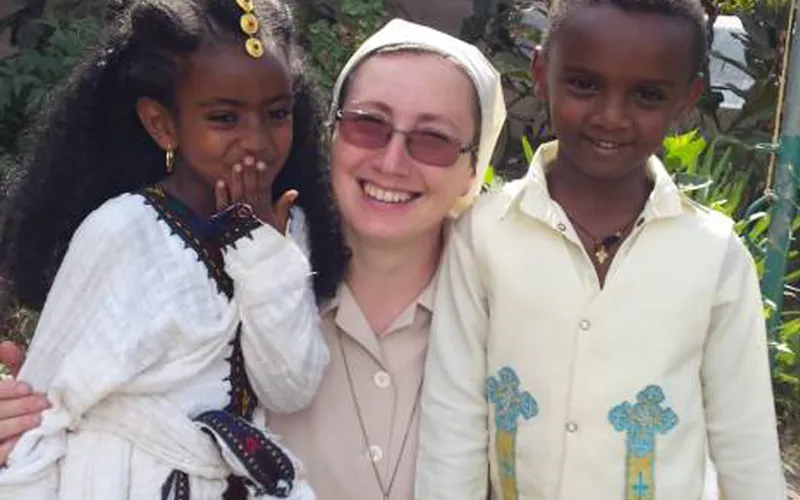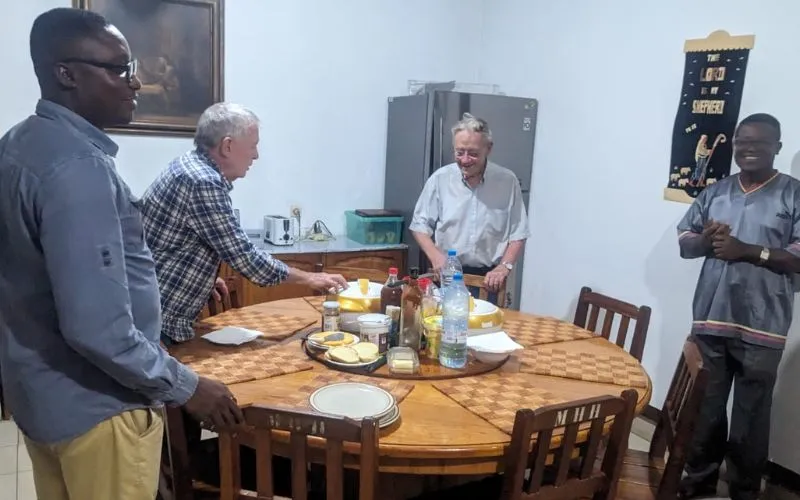The same day, the Sisters saw a long line of tanks that were closely followed by soldiers pass through Shire. This, she recalls, went on for more than a week while streets remained desolate.
“For nearly two days, we hardly saw anyone moving on the street. Then timidly the people of the city began to go out. We saw some collaborators also from our health center, the small hospital which, in normal times, welcomes at least 300 people every day,” she narrates, adding that the Sisters plunged into action, attending to those who urgently needed health care.
The Sisters also learnt of the many bodies that had been abandoned around churches in the town of Shire that was now under full possession of the country’s federal soldiers.
“People felt a little relieved, if you can put it that way, because we only had federal soldiers and not those from Eritrea. Eritreans are feared even by the mention of the name alone. And their fear was well motivated,” Sr. Monica says in the report by Agenzia Fides.
The Catholic Nun says that the humanitarian situation in Tigray has continued to deteriorate by the day.
(Story continues below)
She further condemns perpetrators of the violence, saying, “It is not easy to see, or rather, take part in this terrible story where, in the name of justice, man raises his hand against the other man who is his brother.”
The Nun further poses, “How can we not see and feel the desperation of the people who, in order to escape from death, walked for days without anything, facing all the dangers of the situation? How not to feel involved in the pain of so many people who cannot reach their loved ones and do not know if they are alive or dead?”
“Is it possible to remain indifferent to the many pregnant women who could not find a safe place to give birth to their newborn and who for days and nights found themselves in the middle of the street? How not to feel touched to see how people would walk for hours in order to find a doctor, carrying their sick person on their backs, with a 'bed' made of some wooden boards or, who was more fortunate, with a donkey and a wheelbarrow?” she says.
“Six months have passed and this continues,” Sr. Monica says, and adds, “It is always hoped that maybe tomorrow it will end and at the same time we live in the uncertainty that things will worsen and not knowing for how long.”
She says that today, many displaced people continue to arrive and fill Shire.
“Even today as I write these few lines of my experience, man is increasingly trampled on in his dignity, abused, mistreated to the point of death and even after,” the Nun says in her letter to Agenzia Fides, and poses, in her call for the end of the violence, “Where are you as a man? Where is your dignity as a human person? Where is your humanity?”
In her moving letter, Sr. Monica summarizes her three-year stay in Shire, saying, “Everything can never be expressed. What I deeply felt and that shook me as a person, remains there as a treasure of my history with man and with God, in this historical moment in Tigray.”
Agnes Aineah is a Kenyan journalist with a background in digital and newspaper reporting. She holds a Master of Arts in Digital Journalism from the Aga Khan University, Graduate School of Media and Communications and a Bachelor's Degree in Linguistics, Media and Communications from Kenya's Moi University. Agnes currently serves as a journalist for ACI Africa.








